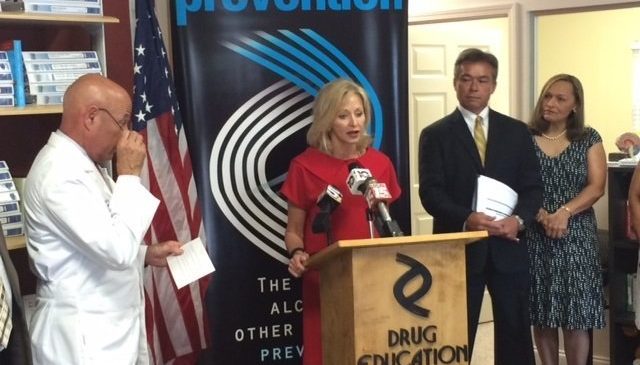Monday afternoon local officials gathered at the Drug Education Council office to stress the dangers of synthetic marijuana, commonly known as spice.
Although the amount of spice cases has recently decreased since the spike in the last couple of months, Mobile County Sheriff Sam Cochran described the issue as “a crisis or epidemic” and said the county hasn’t seen anything with this serious of an impact in several years.
Cochran said spice is being manufactured locally more than in the past, and locals have also learned how to manufacture spice.
“We recognize it as the single most significant threat to the health and safety to the people in our area,” said Mobile Police Chief James Barber.
He said local hospitals have gone from an average of nine spice-related cases a day to one and a half. Barber said the police department has taken a proactive approach, and released a public service announcement early this month.
From March 15 to about April 20 at least 250 people were treated in Mobile County emergency rooms for serious health complications related to spice, Dr. Jim McVay with the Alabama Department of Public Health told AL.com in late April.
Casandra Andrews with the Mobile County Health Department said Monday that Mobile County’s five local hospitals reported a total of 16 spice-related ER visits between May 11 – 15. Ages ranged from 15 to 58, and no deaths have been reported in Mobile since the state began counting spice cases last month.
“We are also seeing a grass roots movement of former users of spice that are now starting to get out and get the word out about the danger of spice and we think that’s a very positive thing,” Barber said.
Bradley Sadler, who works with Altapointe Health Systems and consults with University of South Alabama Hospitals, said patients admitted with spice-related illnesses have psychosis, hear things, see things, are confused, agitated, show aggression, and sometimes hospital staff have been hurt. Sadler also said certain effects of spice can be long-term.
Spice is 500 to 800 times more potent than regular marijuana, according to Sadler.
He’s seen a slight decrease in the number of spice-using patients admitted to USA Medical Center.
However, Dr. Bert Eichold with the Mobile County Health Department said spice is not a reportable disease by the Alabama Department of Public Health, meaning hospitals do not have an obligation to report every case.
Eichold said Mobile’s large number of spice cases could be because the city is a maritime port, and there’s usually an increase in activity with contraband around most ports.
He also believes Mobile hospitals are efficient with reporting spice cases. “We have better recording from our hospitals and emergency room departments related to the number of cases we actually have,” Eichold said.
On April 23 the Alabama Department of Health reported that 462 people had been seen in Alabama emergency rooms during the past month after smoking or ingesting spice. This means more than 50 percent of spice cases in the state occurred in Mobile.
